Kids Don’t Need Likes—They Need You: A Guide to Protect Childhood Innocence Online
By–Sevs Armando – ShiftDesire
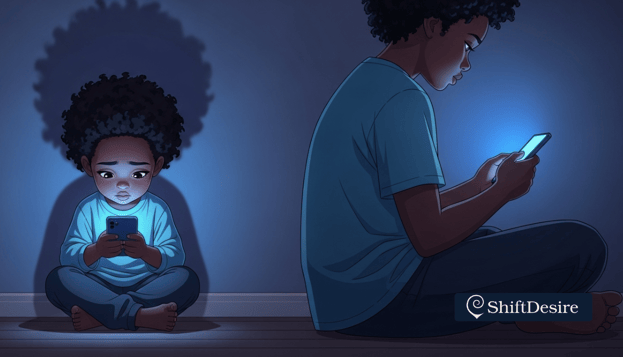

A Wake-Up Call No Parent Wants
"He was only 9... and what he saw that day forever changed his view of the world."
Jessica thought she was doing everything right. She limited screen time, checked the apps, and trusted that the “child-friendly” label was enough. But one evening, as she walked past her son's bedroom, she overheard a conversation that made her heart sink.
A stranger had sent her son an explicit message through an online game chat.
Jessica froze. A mix of guilt, fear, and helplessness consumed her. “How did I not see this coming?” she whispered.
Her story is more common than we dare to believe. Because the danger isn’t always obvious. It doesn’t wear a mask. It hides in plain sight — behind cute filters, popular songs, and viral trends.
Why Kids Don't Need Likes—They Need You
In a world where screens are raising our kids, parental presence has never been more critical.
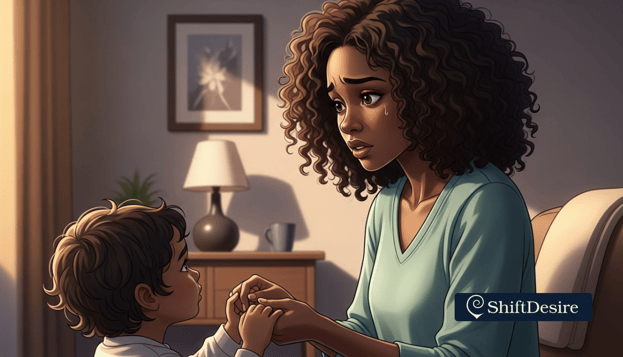

The Invisible Danger: How Childhood Innocence Is Being Stolen
The Sexual Content Hiding in Plain Sight
Did you know? By age 11, 68% of kids have been exposed to explicit content — often accidentally.
Social media, YouTube shorts, TikTok dances, and even innocent-looking games are filled with subtle — and not-so-subtle — sexual content. This is not just about pornography. It’s about the slow drip of suggestive songs, filtered selfies, and trends that sexualize children before they even understand what it means.
How It Happens
Trending challenges: Many popular dance trends are rooted in adult themes.
Suggestive ads: Algorithms push content based on engagement, not age-appropriateness.
Gaming chatrooms: Hidden predators lurk in spaces kids trust.
TV & streaming: Shows aimed at preteens often normalize adult relationships and behaviors.
The Psychological Cost of Growing Up Too Fast
When kids are constantly exposed to adult content:
Their self-worth gets tied to appearance.
They feel pressure to look “desirable” for validation.
It leads to anxiety, depression, and body image issues.
Screen addiction becomes a coping mechanism.
Imagine planting a seed and pouring acid instead of water. That’s what early exposure to sexualized media does to a child’s developing mind.
7 Ways to Truly Protect Children Online
Practical, Loving, and Effective Solutions
1. Start Talking Early — and Keep Talking
Don't wait for "the right time." Start simple:
"You know how we don’t talk to strangers in real life? The same goes for online."
Check in regularly without judgment.
Normalize questions about what they see online.
2. Set Digital Boundaries, Not Digital Prisons
Use parental controls, but explain why.
Balance restrictions with trust-building.
Designate “tech-free” family times — like dinner or weekends.
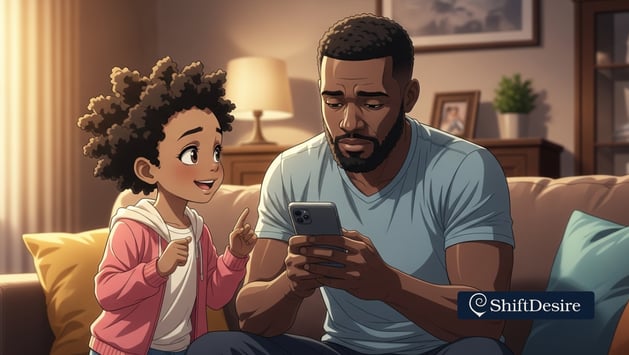

3. Audit What They Actually See
Sit with them and scroll together occasionally.
Review the games, channels, and influencers they follow.
Teach them how to spot inappropriate content.
4. Empower, Don’t Just Control
Teach critical thinking: “Why do you think this video is popular? Is it kind? Is it respectful?”
Celebrate when they make safe choices.
5. Be the Example They Follow
Are you glued to your phone? They notice.
Show them how to unplug — go outside, cook together, or play board games.
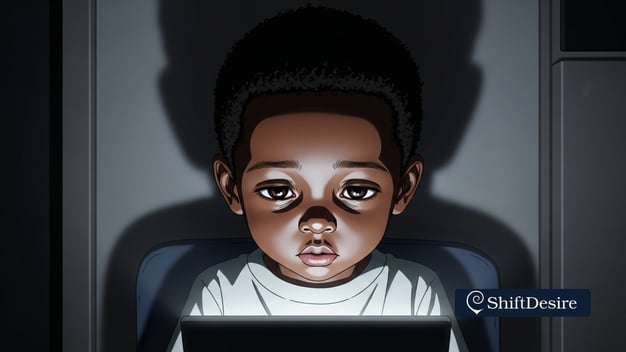

6. Use Tech to Fight Tech
Install reputable apps for internet safety for kids (e.g., Bark, Net Nanny, Qustodio).
Enable YouTube Kids or safe modes on browsers.
Keep devices out of bedrooms at night.
7. Teach the Power of Self-Worth Offline
Encourage hobbies that have nothing to do with screens.
Sports, arts, music, nature walks — help them build identity beyond the digital world.
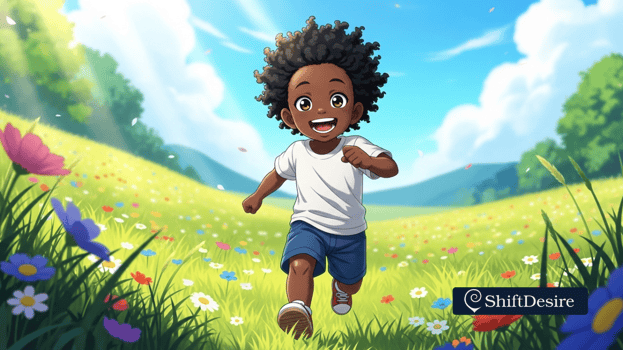

The Hard Truth — and the Beautiful Hope
No, you can’t block every bad thing online.
No app will ever replace you.
Your child doesn’t need more followers. They need your eyes looking at them, not the screen. Your voice, your presence, your love.
This isn’t about being a perfect parent. It’s about being present — consistently, imperfectly, but intentionally.
❤️ Ready to Protect Your Child Today?
Start one conversation tonight.
Review one app together this week.
Join a community of parents learning to raise safe kids.
👉 Share this article with a fellow parent. Let’s build a world where childhood innocence is protected — not sold for clicks.
